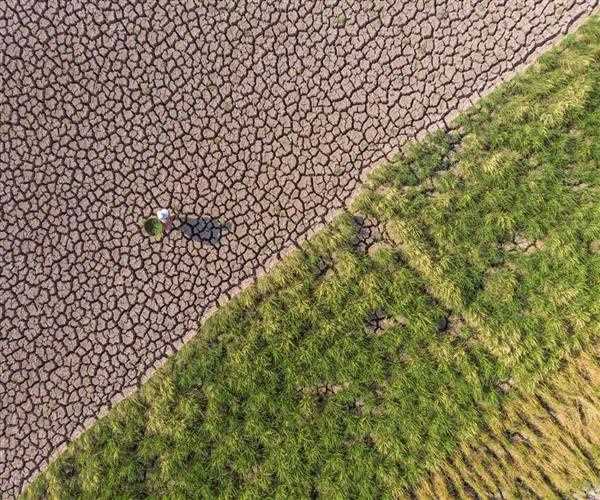
23-Jun-2023 , Updated on 6/23/2023 5:12:10 AM
Why China is digging 10000 wells - Explore more
Highlights
- The country's remote Taklamakan Desert is where China's largest oil producer has begun drilling. The hole is expected to reach a depth of more than 10,000 meters. The borehole, which would be one of the deepest ever drilled, could provide researchers with access to ultra-deep oil reserves and new geological insights.
- The China National Petroleum Corporation began drilling the borehole on 30 May, as reported by the state-run news agency Xinhua. The report states that the narrow borehole is intended to reach a depth of 11,100 meters.
- The borehole, which would be the deepest in China and one of the deepest in the world, would be in the Xinjiang Uighur Autonomous Region in the northwest of the country. The 12,262-meter Kola Superdeep Borehole in northwestern Russia is the deepest hole in the world. Drilling it took 20 years
Currently, China has embarked on an ambitious endeavor of digging 10,000 wells across the country. This massive infrastructure project has caught the attention of the international community and sparked curiosity about its purpose and implications. To understand why China is investing heavily in this initiative, it is crucial to examine the multifaceted motivations behind this ambitious undertaking.
They are on the way of finding oil and gas reserves but there can be n number of factors behind it-
- Water Scarcity and Agricultural Challenges
One of the primary drivers behind China's well-digging initiative is the issue of water scarcity. China is the world's most populous country, with a rapidly growing population and expanding urbanization. Such developments place immense pressure on water resources, especially in arid and semi-arid regions. By digging 10,000 wells, China aims to secure a stable water supply for agricultural purposes, which is vital for ensuring food security and sustaining rural communities.

These wells will facilitate irrigation systems, allowing farmers to cultivate crops in areas where water access is limited. Furthermore, improved irrigation infrastructure will enhance agricultural productivity, contribute to poverty alleviation, and support the country's goal of achieving self-sufficiency in food production.
- Reducing Reliance on Traditional Water Sources
China's well-digging project also serves as a strategy to reduce reliance on traditional water sources, such as rivers and lakes. This approach is driven by concerns over the depletion and contamination of surface water due to industrialization, urban development, and environmental pollution. By tapping into groundwater reserves through wells, China aims to diversify its water supply and ensure a more reliable and sustainable source of water for various sectors.
- Mitigating Climate Change Impacts
Climate change poses significant challenges for China, with changing precipitation patterns, increased frequency of droughts, and rising temperatures affecting water availability. By digging 10,000 wells, China aims to adapt to these climate change impacts by creating alternative water sources and building resilience against water scarcity. Groundwater reserves can act as a buffer during times of reduced rainfall or drought, providing a backup supply that can support ecosystems, industries, and communities.

- Economic Development and Rural Revitalization
Beyond addressing water scarcity, China's well-digging project aligns with its broader goals of economic development and rural revitalization. Many of the wells are being dug in rural areas, where agricultural communities often struggle with limited resources and opportunities. By investing in water infrastructure, China seeks to boost agricultural productivity, improve rural living conditions, and create employment opportunities in these regions. This initiative aims to bridge the urban-rural development gap, reduce poverty, and promote a more balanced distribution of resources across the country.
- Geopolitical Considerations
China's well-digging project also carries geopolitical implications. As the world's second-largest economy and a global power, China seeks to secure its own water resources to reduce vulnerability to external factors. By developing self-reliant water sources, China aims to enhance its domestic stability, reduce dependence on international trade for water-related goods, and strengthen its geopolitical position.
Furthermore, China's expertise in well-digging technology can be exported to other countries facing similar water challenges. This initiative presents an opportunity for China to expand its influence globally, strengthen diplomatic ties, and establish itself as a leader in water management and infrastructure development.
- Environmental Concerns and Sustainability
While China's well-digging project aims to address immediate water scarcity issues, it also raises concerns about long-term environmental sustainability. Over-extraction of groundwater can lead to land subsidence, deplete aquifers, and cause ecological imbalances. Therefore, it is essential for China to ensure proper regulation, monitoring, and management of the wells to prevent negative environmental consequences.
Additionally, China must explore complementary measures to promote water conservation and efficiency, such as implementing water-saving technologies, promoting sustainable farming practices, and investing in wastewater treatment and reuse. These measures are crucial for maintaining the long-term sustainability of water resources and minimizing the potential negative impacts associated with extensive well-digging
Moreover, the quality of groundwater needs to be carefully monitored. Contamination from industrial activities, agriculture, and other sources can pose significant risks to human health and ecosystems. China must enforce strict environmental regulations and invest in pollution control measures to safeguard the quality of groundwater resources.
Furthermore, the massive scale of the project requires significant financial investment and technical expertise. China needs to allocate resources efficiently, ensure transparency in project implementation, and prioritize sustainable development practices to maximize the benefits of the well-digging initiative.
- International Collaboration and Knowledge Sharing
China's well-digging project presents an opportunity for international collaboration and knowledge sharing. Many countries around the world are grappling with water scarcity and could benefit from China's experiences and expertise in water management. By engaging in dialogue, sharing best practices, and collaborating on research and development, countries can work together to address water challenges more effectively and promote sustainable water management on a global scale.
In conclusion, China's ambitious initiative of digging 10,000 wells is driven by multiple motivations and objectives. It aims to address water scarcity, ensure agricultural productivity, adapt to climate change impacts, promote economic development and rural revitalization, strengthen domestic stability, and enhance China's geopolitical position.

SEO and Content Writer
I am Drishan vig. I used to write blogs, articles, and stories in a way that entices the audience. I assure you that consistency, style, and tone must be met while writing the content. Working with the clients like bfc, varthana, ITC hotels, indusind, mumpa, mollydolly etc. has made me realized that writing content is not enough but doing seo is the first thing for it.
Join Our Newsletter
Subscribe to our newsletter to receive emails about new views posts, releases and updates.
Copyright 2010 - 2026 MindStick Software Pvt. Ltd. All Rights Reserved Privacy Policy | Terms & Conditions | Cookie Policy